Investing in Students

All students deserve the opportunity to pursue their dreams and create their future. Partnering with and being led by community, Grand Rapids Community Foundation works to eliminate barriers that many students still face.
Understanding the Landscape
and Defining Our Role
The COVID-19 pandemic immersed students and their families in a once-in-a-generation challenge. Suddenly, many had to learn at home. Some students more acutely felt their families’ economic stress. Others felt the personal and societal weight of racial reckoning rippling across the country.
Kent County’s educational landscape has changed significantly in recent years, with the new Grand Rapids Promise Zone Scholarship and other regional and statewide efforts to expand post-secondary access and affordability. While this progress is encouraging, too often the outcomes we measure, like graduation rates or school funding, show that our education system creates opportunities for some but excludes others. It’s important to evaluate and understand where systems fall short of providing equitable opportunities for all students. The reality is that barriers to education still exist for many students.
What role does Grand Rapids Community Foundation play in this complex system? Fueled by the generosity of donors, the Community Foundation has offered scholarships for college and career training for decades. Our partners, including students, their families and local education leaders, guide our strategy. Our equity work is shifting our thinking. It leads us to also consider how systems and structures are set up in ways that don’t work—and weren’t designed to work—for students, especially students of color.
“I encourage all of us, as a community, to continue to hear the stories, continue to honor the stories and continue to support and love on our young people as they navigate these current systems that we know aren’t set up for their success.”
— DR. SHAYLA YOUNG
Partners Build Opportunity, Prosperity and Belonging
PHIL PEARSON
Phil Pearson’s parents believed in education and instilled in Phil and his seven siblings a sense of personal responsibility. Phil has always preferred to work with his hands, learning alongside his father and working many jobs as a young man, including Army service. The day before his GI Bill benefit expired, he drove to Ferris Institute to enroll, eventually earning his certificate in printing management.
After starting a family and building his career in printing and real estate, Phil was invited by a friend, Gene Proctor, to co-found Black Men Building Resources, a scholarship fund at the Community Foundation. Phil and other fund founders invested $1,000 each. Their investment has grown and compounded to award scholarships to Black students each year since 1995. Phil’s investment in the Community Foundation continues today.
“I would try to impress on them (young people) the fact that continuing school, furthering your education, is always good,” Phil says. “Not just some of the time, it’s always good… for the advancement of your own person. It’ll also help you to help other people.”
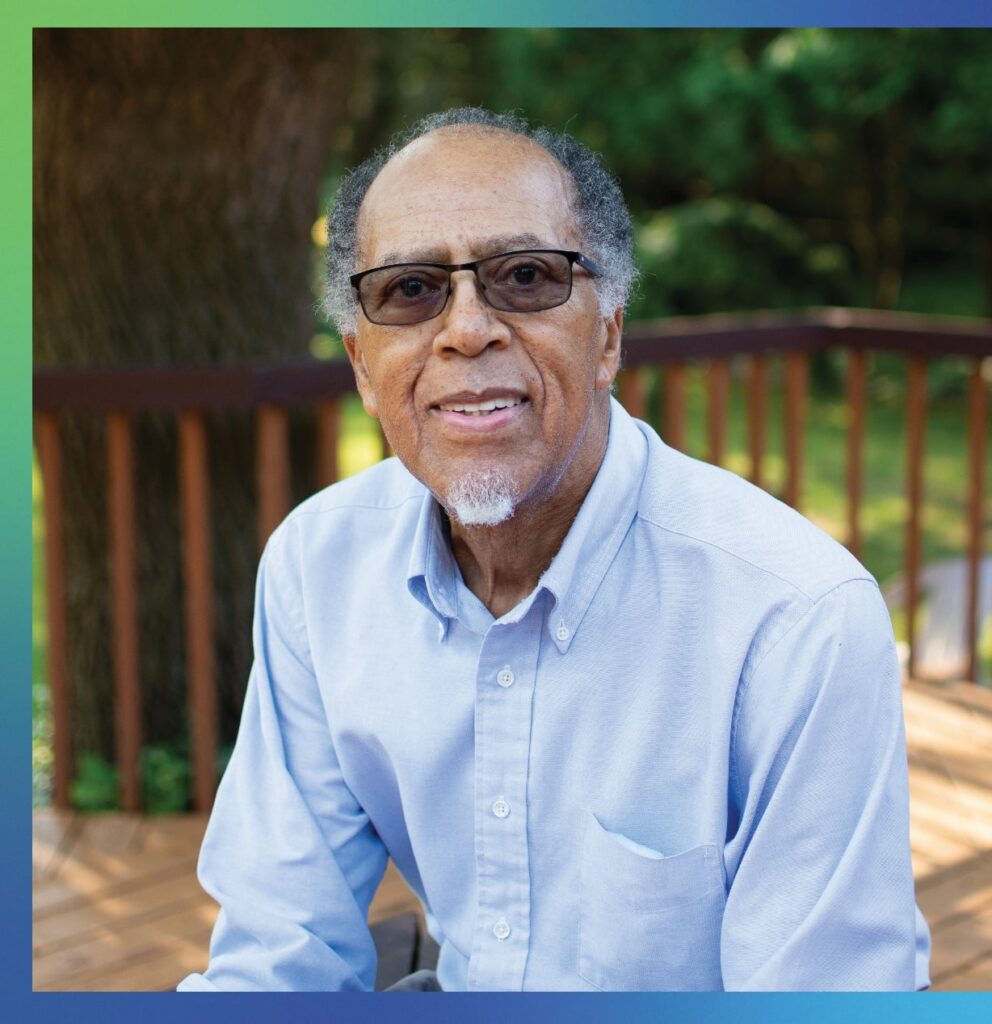
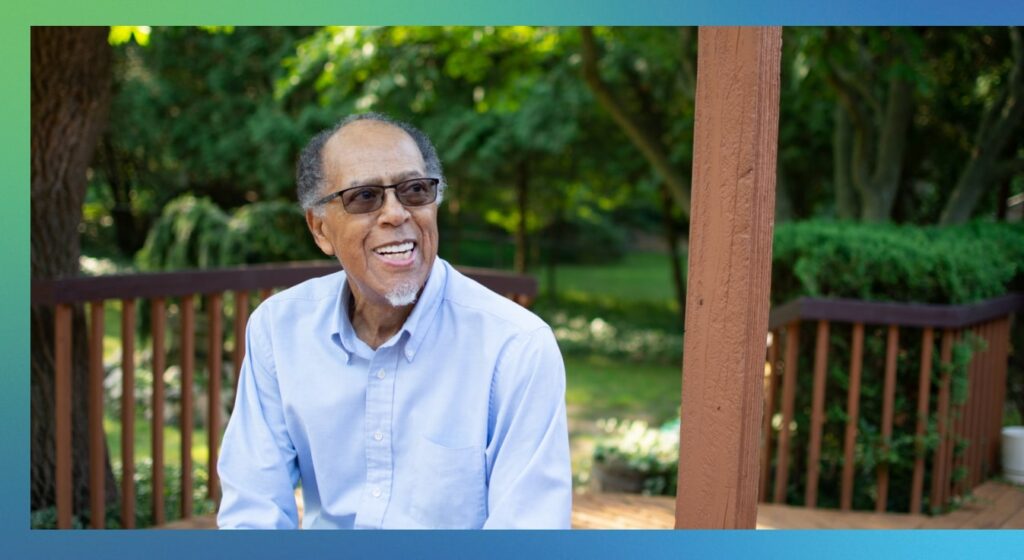
Phil Pearson
When the Black Men Building Resources scholarship was established, the founders also created a mentorship program and organized service opportunities for students.
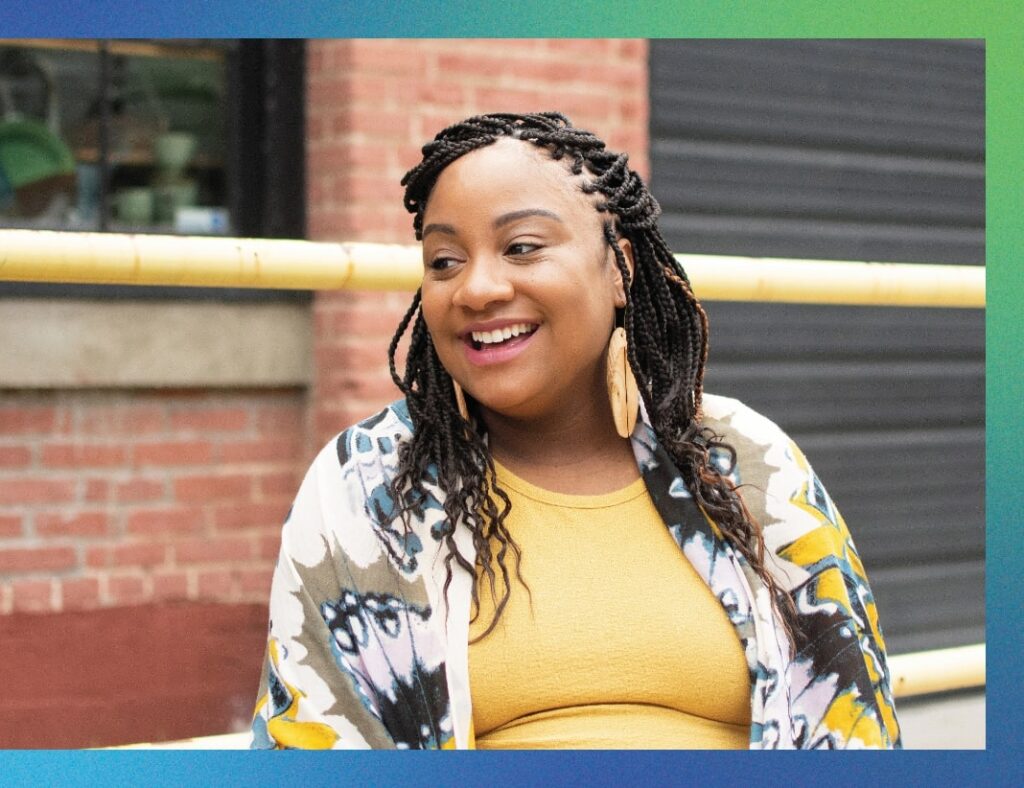
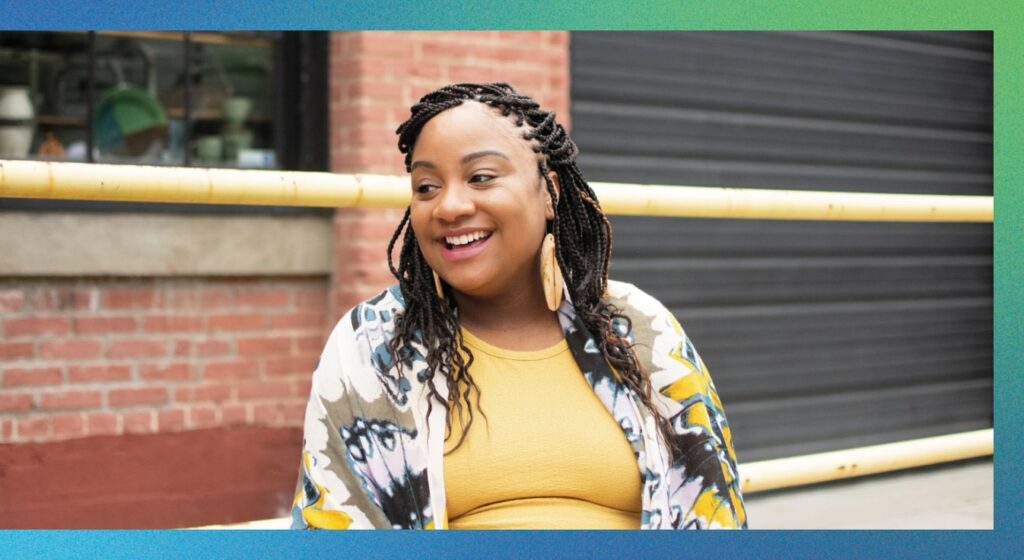
Dr. Shayla Young
“I am the student that I serve. That, in part, drives a lot of my passion and zeal and commitment to the work.”
— Dr. Shayla Young
DR. SHAYLA YOUNG
Dr. Shayla Young is the coordinator of T2C Studio, a “To College Through College” initiative that breaches barriers to student success in higher education. She is a professional in the field with deep personal experience that informs her work.
As a student, Shayla didn’t always feel the support of her community. She questioned if she belonged in Grand Rapids after high school graduation and, unfamiliar with internship opportunities and networks, worked in a factory between college semesters.
“I am the student that I serve,” Shayla says. “That, in part, drives a lot of my passion and zeal and commitment to the work.”
Shayla reminds us that being a first generation college student or lacking deep networks can thwart educational success. Each student brings what she calls “community experience” to their educational experience.
Economic insecurity, discrimination and racism or family instability deeply challenge students’ ability to flourish in school. She explains that besides establishing pathways to success for students through affordability efforts like scholarships, we must clear those pathways of barriers and potholes.
Shayla volunteered her time as a member of the Challenge Scholars Advisory Committee, which guided the Community Foundation’s future education strategy, including recommendations to reimagine the Challenge Scholars program.
“I encourage all of us, as a community, to continue to hear the stories, continue to honor the stories and continue to support and love on our young people as they navigate these current systems that we know aren’t set up for their success—not just by nurturing the problem, but by addressing it,” Shayla says.
“I am the student that I serve. That, in part, drives a lot of my passion and zeal and commitment to the work.”
— Dr. Shayla Young
BRITNEY GARCIA
Britney Garcia, a Class of 2022 student at City High Middle School, is an engaged leader who takes advantage of opportunities by participating in local and national programs, including the Community Foundation’s Youth Grant Committee.
She has seen that community investment in students motivates them to “go above and beyond” and pursue their dreams.
Being a first-generation student has factored into Britney’s experience, bringing unique challenges and a mental and emotional toll that has been amplified during the COVID-19 pandemic.
“We don’t have the resources that others have—such as having help all the time. I had to go above and beyond to reach out to someone or schedule more time with teachers,” Britney says. “There have been factors such as financial instability, unemployment benefits such as federal stimulus checks, and inadequate health coverage, which not only would affect my family, but it would affect me.”
She thinks teachers and administrators who understand student challenges can make a difference, and she’s found mentors through her extracurricular clubs and groups. Participating has built Britney’s confidence and leadership skills. Her dreams center on immigration law and creating smoother pathways to citizenship in the United States.
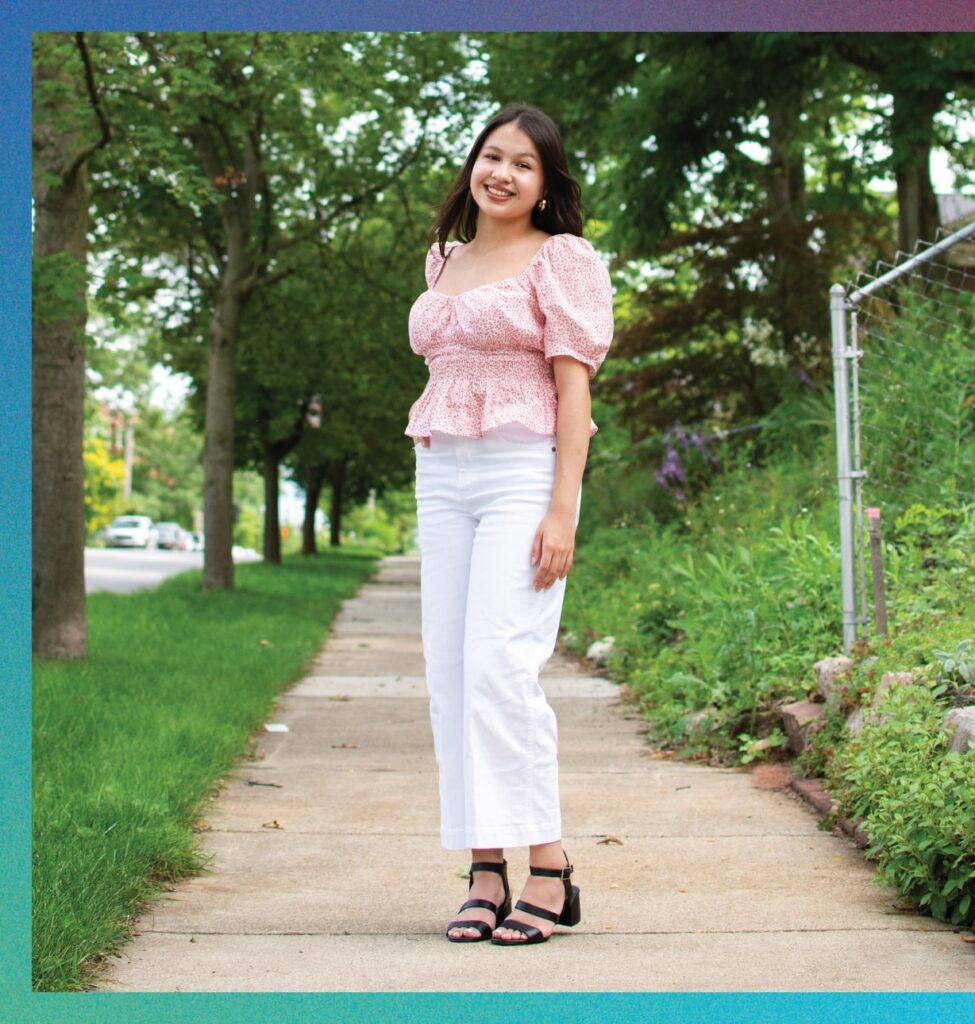
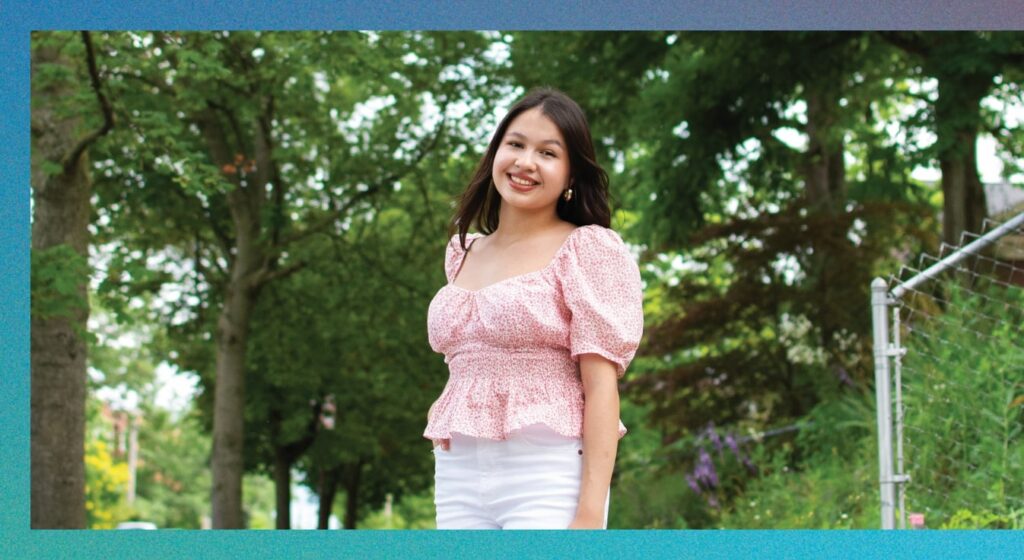
Britney Garcia
Britney has found belonging in the YWCA Helen Claytor Center for Girls’ Leadership. In weekly meetings, the group discusses social justice, current events and leadership. “It’s nice to catch up with everyone and see everyone’s opinions and know what’s going on. And I think it is very important to have a solid friendship and community that you can rely on that can be very supportive.”
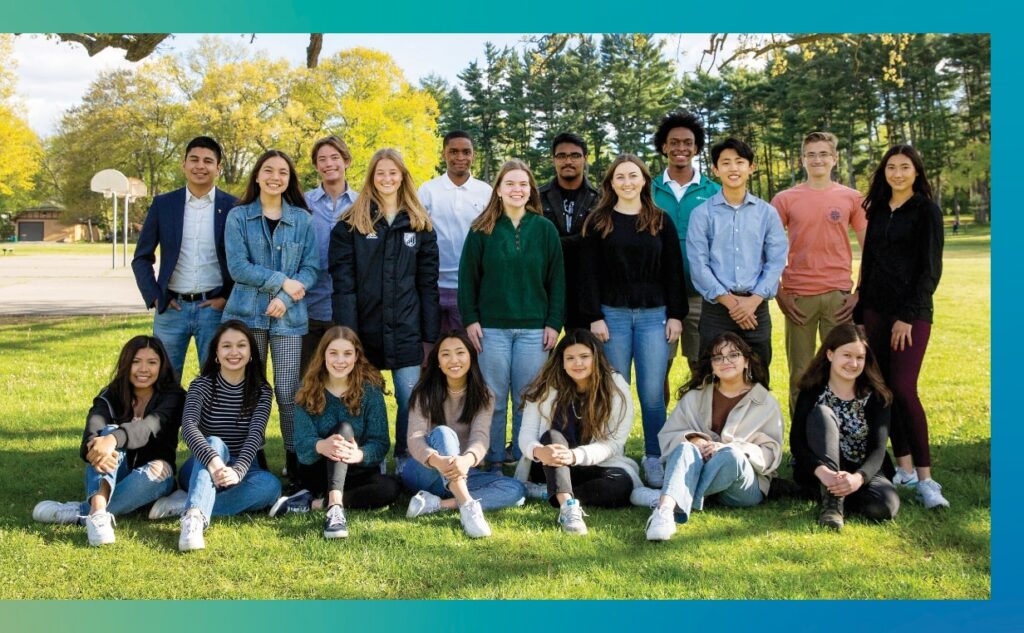

Britney Garcia and her Youth Grant Committee peers
“We don’t have the resources that others have—such as having help all the time. I had to go above and beyond to reach out to someone or schedule more time with teachers.”
— Britney Garcia
PUTTING STUDENTS FIRST
Our Community Foundation partners are helping us refocus our support for equitable education that creates opportunity for all students.
Scholarships continue to create access and affordability for Kent County students. Donor partners like Phil made it possible to award scholarships to more than 400 students in 2021.
As a Challenge Scholars Advisory Committee member, Shayla and other close partners challenged our notions of our role in changing the educational system. Over more than a year, they provided honest feedback on what the Community Foundation could achieve through its resources, power and community role. Ultimately, their recommendations led to changes in our education strategy, including a renewed commitment to community-led grantmaking, new investments in community-led advocacy and the decision to enroll the Class of 2028 as the final cohort of Challenge Scholars.
Students like Britney continue to motivate this work. Instead of requiring students and families to adapt to an inequitable system, we are refocusing on how we can dismantle and influence the system to make it more equitable.
For decades, education has been a priority of our work. As we rebuild and redefine the systems of our future, the Community Foundation remains committed to educational equity—where race, ethnicity and first-generation status do not predict educational opportunity and prosperity.